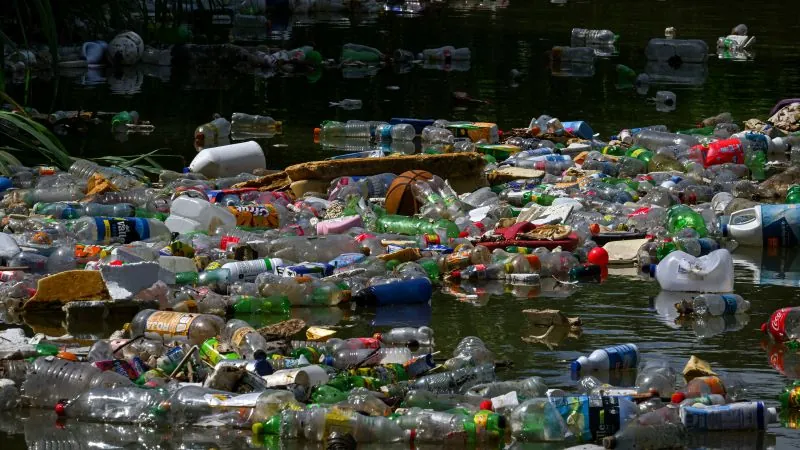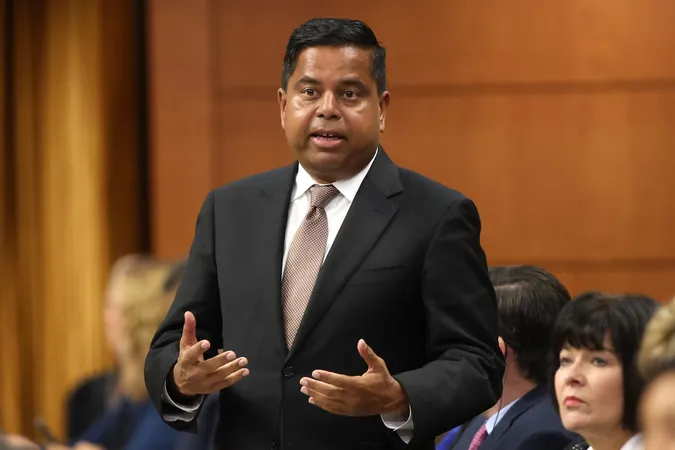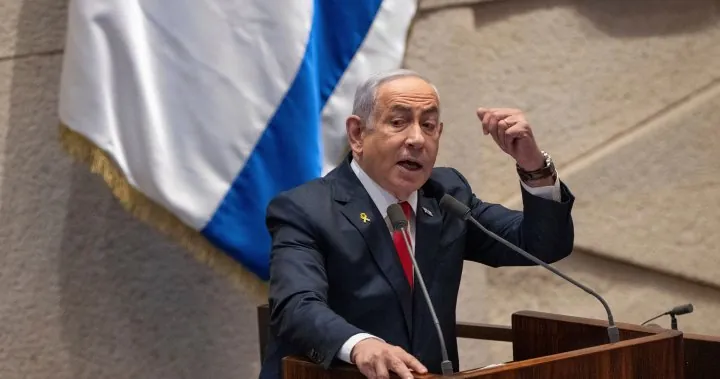
Global Efforts to Combat Plastic Pollution Stall at UN Meeting: What’s Next?
2024-12-02
Author: William
Global Efforts to Combat Plastic Pollution Stall at UN Meeting: What’s Next?
In a significant setback for international efforts to tackle plastic pollution, more than 100 countries seeking to limit plastic production failed to reach a consensus at the fifth UN Intergovernmental Negotiating Committee (INC-5) meeting held in Busan, South Korea. Instead, the negotiations are set to continue with further discussions dubbed INC 5.2 at a later date.
The meeting, originally intended to finalize a legally binding global treaty, revealed stark divisions between countries. While a majority campaigned for a cap on plastic production, a minority of oil-producing nations, such as Saudi Arabia, resisted this notion, focusing solely on addressing plastic waste management.
"Inger Andersen, the executive director of the UN Environment Programme, noted: 'It is clear that there is still persisting divergence,'" highlighting the significant gaps that remain between negotiating parties. Major contentious points included not only production limits but also managing hazardous chemicals in plastics and providing financial support for developing nations.
One proposal from Panama, endorsed by over 100 nations, aimed to implement global production reduction targets. In contrast, other nations pushed forward with plans that did not address production caps, leading to an impasse. The chair of the meeting, Luis Vayas Valdivieso, presented a revised document that signifies the potential framework for a treaty, yet it is plagued with contentious options that reflect deep-seated disagreements.
Rwanda's director general of the Environment Management Authority, Juliet Kabera, voiced discontent with the negotiation's direction, asserting, "A treaty that only relies on voluntary measures would not be acceptable," and called for a robust framework that could genuinely produce results.
On the other hand, representatives from petrochemical nations like Saudi Arabia voiced their opposition to proposals for production reduction, claiming procedural entries in discussions that did not align with their stance. Saudi Arabian delegate Abdulrahman Al Gwaiz stated, “There was never any consensus,” suggesting procedural maneuvering to sidestep potential agreements.
The urgency behind these negotiations is underscored by stark statistics—global plastic production is projected to triple by 2050. Alarmingly, microplastics have been detected in various aspects of human life, including air, food, and even human breast milk, raising concerns regarding health and environmental impacts.
Recent discussions at the COP29 summit in Baku, Azerbaijan, placing a new target of mobilizing $300 billion annually in climate finance, only added to the tension and frustration. Critics of the climate talks pointed fingers at procedural delays orchestrated by a select few countries that hindered decisive action.
As the international community grapples with the escalating plastic crisis, calls have been made for urgency in resuming talks. Juan Carlos Monterrey Gomez, head of Panama’s delegation, warned, “Every day of delay is a day against humanity. Postponing negotiations does not postpone the crisis.”
It is clear that without a collaborative and urgent approach to negotiating an effective treaty, the fight against plastic pollution could be an uphill battle, with higher stakes looming ahead. The repercussions of inaction could potentially echo the consequences faced in other areas of environmental degradation, calling for profound commitment from global leaders in the quest for sustainable solutions.









 Brasil (PT)
Brasil (PT)
 Canada (EN)
Canada (EN)
 Chile (ES)
Chile (ES)
 España (ES)
España (ES)
 France (FR)
France (FR)
 Hong Kong (EN)
Hong Kong (EN)
 Italia (IT)
Italia (IT)
 日本 (JA)
日本 (JA)
 Magyarország (HU)
Magyarország (HU)
 Norge (NO)
Norge (NO)
 Polska (PL)
Polska (PL)
 Schweiz (DE)
Schweiz (DE)
 Singapore (EN)
Singapore (EN)
 Sverige (SV)
Sverige (SV)
 Suomi (FI)
Suomi (FI)
 Türkiye (TR)
Türkiye (TR)